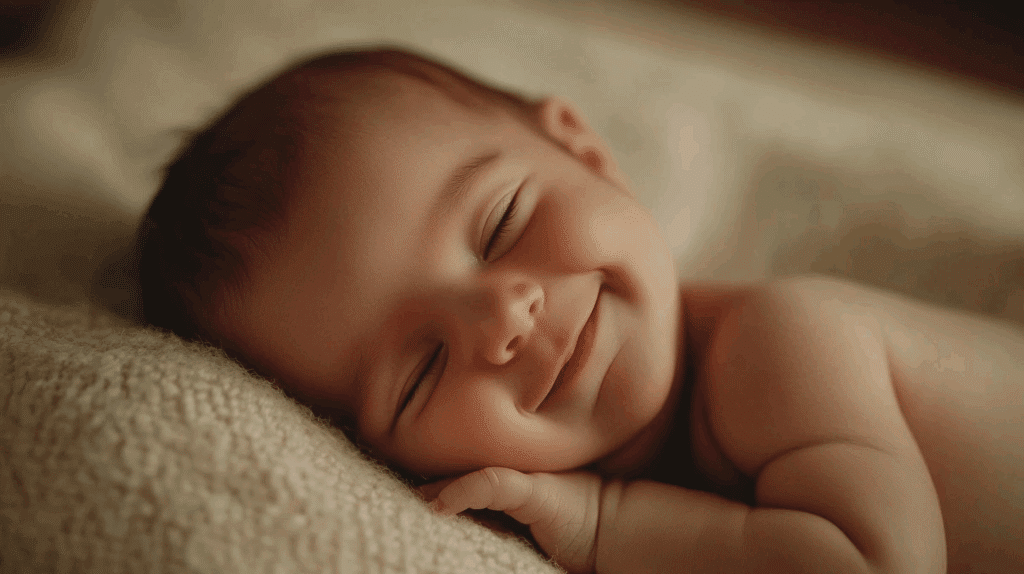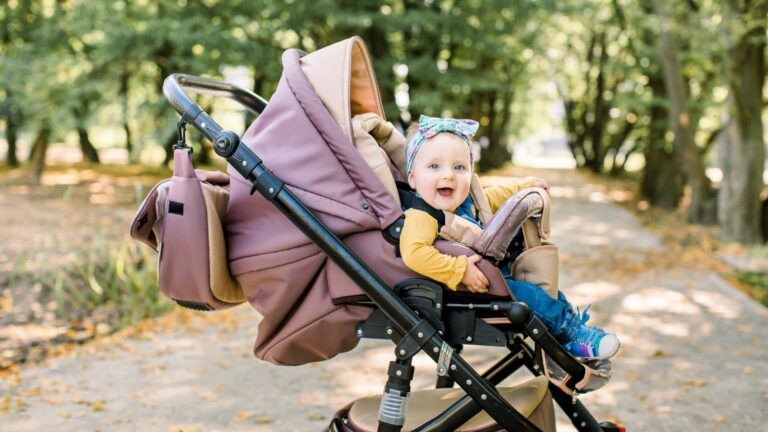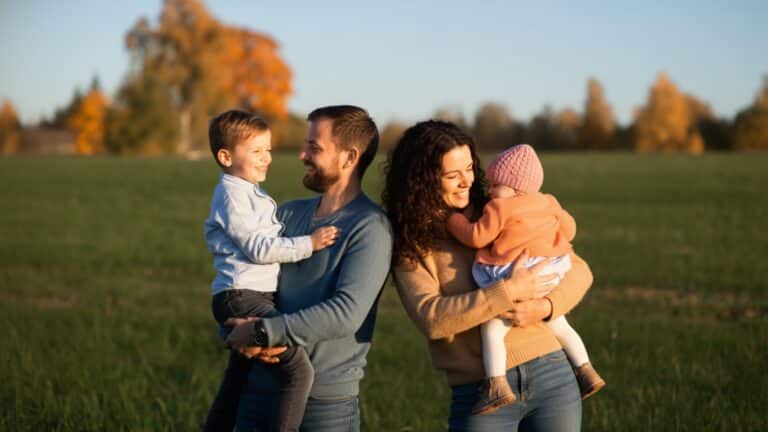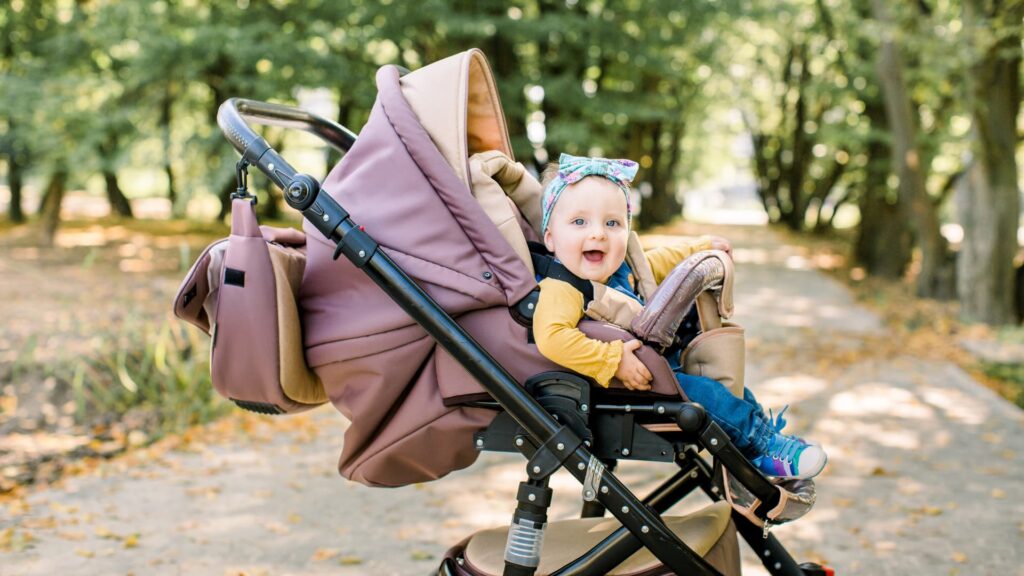Parents often notice their newborns smiling in their sleep. These small, sweet smiles seem magical, but many wonder what’s happening in their baby’s developing brain. Is it gas? A dream? Or something else entirely?
These sleep smiles aren’t just random facial movements. They actually tell us something about your baby’s growth and development.
This blog explains why do newborns smile in their sleep.
It covers what causes them and what they might mean for a baby’s brain development. Learn how these early smiles differ from social smiles that come later.
What Happens to a Baby While They Sleep?
Sleep is key for a baby’s growth. During these quiet hours, little bodies build muscles, fix tissues, and release hormones that help them grow. Their brains stay active too.
While babies sleep, their minds sort through new things they learned and build memory paths. Their brains move through sleep stages much quicker than grown-ups.
Good sleep helps babies:
- Control their feelings better
- Have more energy when awake
- Cry less and seem happier
- Feed more regularly
The way a baby sleeps affects how they act when they’re awake. Babies who rest well often seem happier during the day.
What Causes Newborns to Smile in Their Sleep?
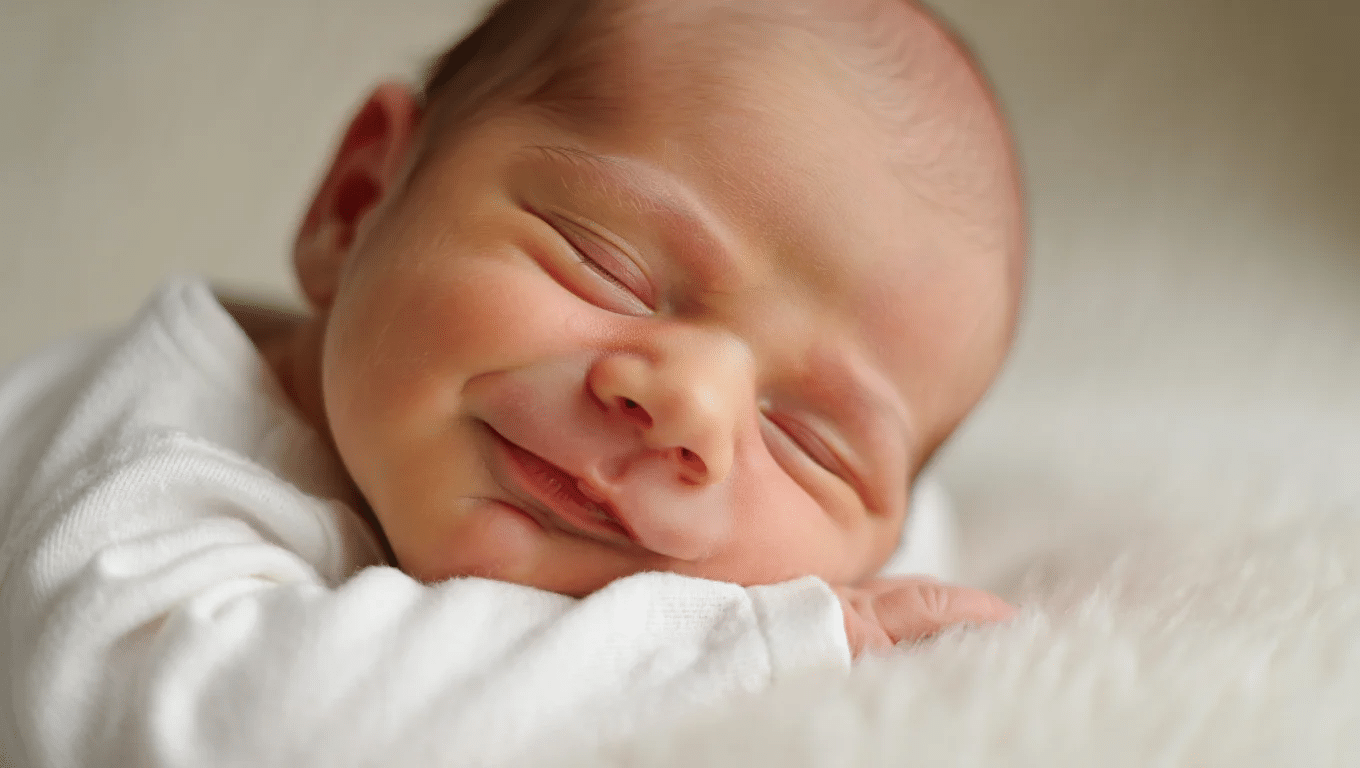
Parents often catch their newborns smiling during sleep and wonder about the reason behind these heartwarming moments. Why do newborns smile in their sleep?
These sweet expressions typically occur during specific sleep phases and connect to several factors in the baby’s developing brain.
REM Sleep
REM (Rapid Eye Movement) sleep is a sleep phase when the brain shows high activity levels. In newborns, this phase makes up about 50% of their total sleep time, which is much more than in adults.
During REM sleep, a baby’s brain processes information and forms new connections.
The baby’s eyes move quickly under their eyelids during this phase. Their breathing may become faster and less regular. Small body twitches and facial movements, including those adorable smiles, often happen during this time.
How REM Sleep Affects Brain Activity:
- Brain development and learning
- Memory formation
- Sensory processing
- Emotion regulation
Reflex Smiles
Many early newborn smiles are simply reflexes. These reflex smiles can happen when the baby is awake or asleep and don’t necessarily link to emotions like happiness.
Newborns start showing reflex smiles even before birth, sometimes as early as the second trimester of pregnancy. These involuntary muscle movements happen as part of normal nerve and muscle development.
As babies grow, these reflex smiles slowly change into social smiles, the ones babies give in response to seeing a parent’s face or hearing a familiar voice, usually starting around 6-8 weeks of age.
Other Possible Causes
Sleep smiles may also happen due to:
- Gas or digestive processes
- Response to internal sensations
- Practice for later social interactions
- Dream-like states (though experts debate if newborns truly dream)
Scientists think these expressions might help babies practice important social skills they’ll need later for bonding with caregivers, even while sleeping.
Create Good Sleep Habits While Watching Those Dreamy Smiles
Understanding why do newborns smile in their sleep adds another layer of joy to your nighttime routine. While you enjoy these sweet moments, you can also help build healthy sleep patterns that support your baby’s growth and happiness.
Here are simple ways to help your little one sleep well:
- Keep the room slightly cool and comfortably dark during sleep times
- Use a gentle sound machine to block sudden noises that might wake the baby
- Follow a simple bedtime routine like bath, book, and cuddle
- Put the baby down drowsy but still awake to help them learn to fall asleep
- Watch for tired signs like eye rubbing or crankiness
- Try not to wake your baby to check on those cute sleep smiles
- Place the baby on their back on a firm, flat surface without pillows or toys
- Be patient, as good sleep habits take time to build, just like other skills
When Sleep Smiles Might Need a Doctor’s Attention?
Parents rarely need to worry when babies smile during sleep. These little grins are normal signs of healthy brain growth. Most sleep smiles show proper development rather than problems.
However, parents should note if sleep smiles come with:
- Unusual jerking movements
- Changes in skin color
- Sleep patterns that seem very different from normal
As babies grow, their sleep habits change. Around 6-8 weeks, babies begin to show social smiles when they see familiar faces or hear voices they know. This change from random sleep smiles to social smiles marks an important step in growth.
If a baby reaches 3 months without smiling when awake, parents should talk with their doctor about this.
The Bottom Line
Now you understand the science behind why do newborns smile in their sleep.
These tiny expressions show their brain hard at work, building connections during REM sleep and practicing important facial movements they’ll use later for social bonding.
Next time you spot a sleep smile, take a moment to appreciate this natural process.
Remember to maintain those healthy sleep habits we discussed, and snap a picture if you can, as these fleeting moments pass quickly!
Have you noticed patterns in when your baby smiles during sleep? Share your experiences in the comments below.

